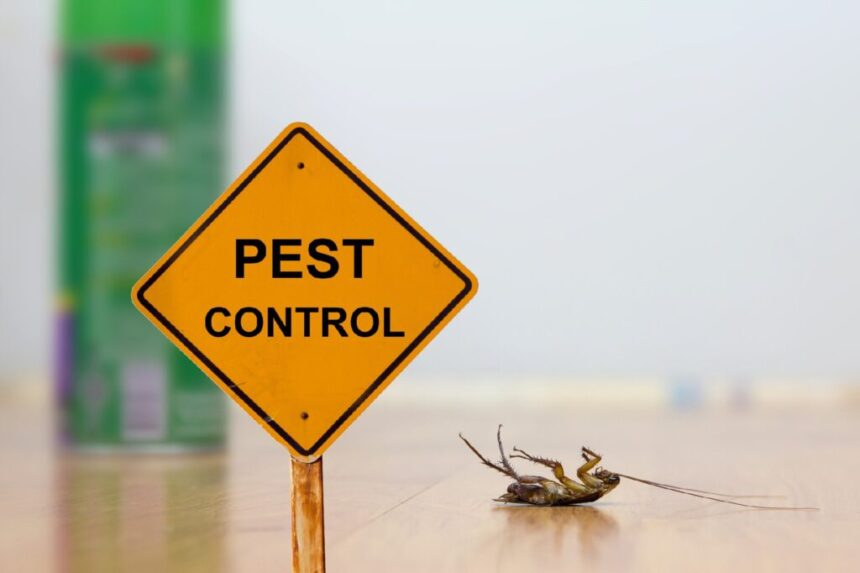Cockroaches are resilient pests known for their ability to adapt and thrive in various environments, making them a common concern for households in Delta. Their presence not only causes discomfort but can also lead to health issues due to the diseases they carry and the allergens they produce. Preventing cockroach infestations requires a proactive approach that focuses on long-term strategies. This article will outline effective methods to keep cockroaches at bay and maintain a healthy living environment.
Understanding Cockroaches
Before implementing prevention strategies, it’s essential to understand the nature of cockroaches. These nocturnal insects prefer warm, humid environments and are commonly found in kitchens, bathrooms, and areas with food sources. The most common species in Delta include the German cockroach, American cockroach, and Oriental cockroach. Each species has different habits and preferred habitats, but they all share the same potential for causing infestations.
Health Risks Associated with Cockroaches
Cockroaches are not just unsightly; they are also health hazards. They can contaminate food and surfaces with their droppings, and saliva, and shed skin, leading to foodborne illnesses. Additionally, the allergens produced by cockroaches can trigger asthma and allergic reactions, particularly in children and individuals with pre-existing respiratory conditions. Understanding these risks emphasizes the importance of prevention.
Long-Term Prevention Strategies
1. Maintain Cleanliness
One of the most effective ways to prevent cockroach infestations is to maintain a clean household. Cockroaches are attracted to food and moisture, so cleaning regularly can eliminate these attractants.
- Kitchen Hygiene: Ensure that countertops, sinks, and stovetops are cleaned thoroughly after cooking. Wipe up spills immediately and avoid leaving dirty dishes in the sink. Store food in airtight containers to prevent access.
- Dining Areas: Clean up crumbs and spills promptly after meals. Regularly vacuum or sweep dining areas to remove food particles that may attract cockroaches.
- Bathrooms: Keep bathrooms dry and clean by wiping down surfaces and addressing any leaks. Cockroaches are drawn to moisture, so fixing dripping faucets and clogged drains can help minimize their attraction.
2. Seal Entry Points
Cockroaches can enter homes through tiny cracks and openings. To prevent them from getting inside, inspect your home for potential entry points:
- Windows and Doors: Ensure that windows and doors fit tightly in their frames. Use weather stripping to seal gaps and install screens to keep cockroaches out.
- Walls and Foundations: Check for cracks in walls and foundations. Use caulk or other sealants to close these openings, making it harder for cockroaches to enter.
- Pipes and Utilities: Inspect areas where pipes and utilities enter your home. Seal gaps around these areas to prevent cockroaches from using them as entry points.
3. Reduce Clutter
Cockroaches thrive in cluttered environments where they can find hiding spots. Reducing clutter in your home can significantly decrease the likelihood of a cockroach infestation.
- Organize Storage Areas: Keep storage areas like basements and attics organized. Use clear plastic bins with tight-fitting lids to store items and reduce potential hiding spots.
- Declutter Regularly: Regularly go through your belongings and discard items you no longer need. This includes old newspapers, magazines, and cardboard boxes that can provide shelter for cockroaches.
- Keep Items Off the Floor: Elevate items off the floor to reduce hiding spots. Use shelves and hooks to store belongings, making it harder for cockroaches to find shelter.
4. Monitor for Early Signs
Regular monitoring can help catch early signs of cockroach activity before they become a full-blown infestation.
- Set Up Traps: Using cockroach traps can help you monitor for activity. Place traps in areas where cockroaches are likely to travel, such as kitchens and bathrooms. Regularly check these traps for signs of cockroaches.
- Conduct Routine Inspections: Make it a habit to inspect your home regularly for any signs of cockroaches, such as droppings or egg cases. The sooner you detect a problem, the easier it will be to address it.
5. Professional Pest Control Services
While preventive measures can significantly reduce the risk of cockroach infestations, enlisting the help of professional pest control services can provide an added layer of security.
- Regular Inspections: Consider scheduling regular pest inspections with a qualified pest control company. These professionals can identify potential problem areas and provide treatment options if necessary.
- Integrated Pest Management (IPM): Look for pest control companies that use Integrated Pest Management methods. IPM focuses on long-term prevention through a combination of techniques, including sanitation, monitoring, and targeted treatments.
6. Address Moisture Issues
Since cockroaches are attracted to moisture, addressing any moisture problems in your home is crucial.
- Fix Leaks: Repair any leaks in pipes, faucets, or appliances. This not only reduces moisture but also eliminates a food source for cockroaches.
- Ventilate: Ensure proper ventilation in areas prone to humidity, such as bathrooms and kitchens. Using exhaust fans can help reduce moisture levels.
- Dehumidifiers: Consider using dehumidifiers in particularly humid areas of your home. Keeping humidity levels low can make your home less inviting to cockroaches.
7. Proper Waste Management
Effective waste management can help deter cockroaches from invading your home.
- Seal Trash Bins: Use trash cans with tight-fitting lids to prevent cockroaches from accessing food waste. Ensure that garbage is disposed of regularly and that trash bins are kept clean.
- Compost Properly: If you compost, ensure that bins are sealed and maintained properly. Avoid adding food scraps that may attract cockroaches.
8. Educate Household Members
Education is key to maintaining a cockroach-free home. Ensure that all household members understand the importance of cleanliness and prevention.
- Involve Everyone: Make everyone in the household responsible for keeping common areas clean. Encourage family members to report any signs of cockroach activity immediately.
- Share Knowledge: Educate your family about the risks associated with cockroaches and the importance of prevention. This knowledge can foster a proactive approach to pest management.
Conclusion
Long-term cockroach prevention requires a multifaceted approach that includes cleanliness, monitoring, and proactive measures. By implementing these strategies, Delta households can significantly reduce the risk of cockroach infestations. Maintaining a clean environment, sealing entry points, and addressing moisture issues are essential components of effective prevention. Additionally, enlisting the help of professional pest control services can provide peace of mind and further protect your home.
By fostering awareness among household members and committing to ongoing prevention efforts, you can create a healthier living space free from the threat of cockroaches. Remember, early detection and proactive management are your best defenses against these resilient pests. With the right strategies, you can enjoy a cockroach-free home and the comfort it brings.






